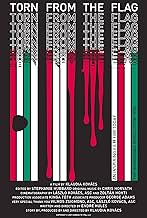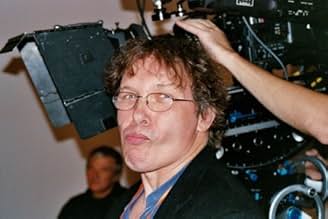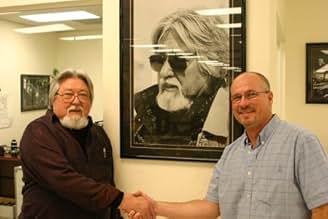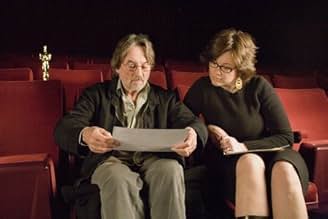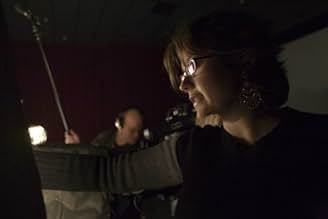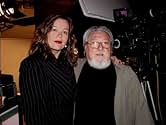A sociopolitical historical documentary-thriller about the international decline of communism and the 1956 Hungarian Revolution.A sociopolitical historical documentary-thriller about the international decline of communism and the 1956 Hungarian Revolution.A sociopolitical historical documentary-thriller about the international decline of communism and the 1956 Hungarian Revolution.
- Directors
- Writers
- Stars
- Awards
- 5 wins & 1 nomination total
Leonid Brezhnev
- Self
- (archive footage)
Winston Churchill
- Self
- (archive footage)
Mikhail Gorbachev
- Self
- (archive footage)
Nikita Khrushchev
- Self
- (archive footage)
Ronald Reagan
- Self
- (archive footage)
Franklin D. Roosevelt
- Self
- (archive footage)
Joseph Stalin
- Self
- (archive footage)
- (as Iosif Stalin)
- Directors
- Writers
- All cast & crew
- Production, box office & more at IMDbPro
Featured reviews
For anyone who doubts the evil barbarity of communism they should see Torn from the Flag, an excellent documentary that begins with the defeat of Nazi Fascism, the initial euphoria of Soviet "liberation", followed by the brutal oppression of the Hungarian people which led to the primary focus of the film the Hungarian Revolution in 1956. The film uses "never- before-seen-in-the west" footage filmed during the 1956 revolution by award winning cinematographers Laszlo Kovacs and Vilmos Zsigmond. From my knowledge and reading of history, the documentary is historically correct and the writers took great pains to interview a wide spectrum of diplomats, freedom fighters, Russian and Hungarian soldiers, members of the police and AVO. They weave the testimonies, the actual footage and archival material into an accurate portrayal of history. The documentary runs for 91 minutes and is scored with 80 minutes of music. I highly recommend it to all.
10eloedl
Klaudia Kovacs, an enterprising young woman from Hungary creates a well balanced documentary of the Hungarian Revolution of 1956.
Although born years after the portrayed history-changing events took place, Klaudia was successful in presenting this lesson in history not only against the Hungarian background and other events throughout the world but also in the time line between 1946 and 1989.
In order to gather her information and facts for said documentary, she interviewed numerous participants of the revolution in Hungary as well as movers and shakers of international history. We hear not only from freedom-fighters, biographers of Russian and US world leaders, Russian political figures, Henry Kissinger and others presenting their take on those memorable days.
The documentary is fast paced, no unnecessary fluff. English subtitles, when and wherever necessary, are excellent. For those in the audience who's only language is English it is smooth sailing, even though there is some Hungarian, Italian and Russian. The film keeps you riveted to your seat from its beginning to its end.
Fifty years after the uprising of a ten-million nation against a heavily armored two-hundred million superpower and a gap of almost two generations Ms. Kovacs succeeded in writing / producing this unique film, with a special perspective which is lauded by former freedom-fighters. We could not have portrayed it better.
In comparing this film to others on the same subject, the 1956 Hungarian Revolution, I have concluded that it can not be compared. It is so different. I feel also, as far as violence is concerned, that there is far less shown in this film then in the news-reports coming from present day Iraq.
This is a film that should be seen and studied by young and old alike, by all those searching for democracy, and by those who fear the loss of democracy.
I have published on the Internet a full critical review of this movie in English as well as in Hungarian. If interested, you may contact me via e-mail.
Although born years after the portrayed history-changing events took place, Klaudia was successful in presenting this lesson in history not only against the Hungarian background and other events throughout the world but also in the time line between 1946 and 1989.
In order to gather her information and facts for said documentary, she interviewed numerous participants of the revolution in Hungary as well as movers and shakers of international history. We hear not only from freedom-fighters, biographers of Russian and US world leaders, Russian political figures, Henry Kissinger and others presenting their take on those memorable days.
The documentary is fast paced, no unnecessary fluff. English subtitles, when and wherever necessary, are excellent. For those in the audience who's only language is English it is smooth sailing, even though there is some Hungarian, Italian and Russian. The film keeps you riveted to your seat from its beginning to its end.
Fifty years after the uprising of a ten-million nation against a heavily armored two-hundred million superpower and a gap of almost two generations Ms. Kovacs succeeded in writing / producing this unique film, with a special perspective which is lauded by former freedom-fighters. We could not have portrayed it better.
In comparing this film to others on the same subject, the 1956 Hungarian Revolution, I have concluded that it can not be compared. It is so different. I feel also, as far as violence is concerned, that there is far less shown in this film then in the news-reports coming from present day Iraq.
This is a film that should be seen and studied by young and old alike, by all those searching for democracy, and by those who fear the loss of democracy.
I have published on the Internet a full critical review of this movie in English as well as in Hungarian. If interested, you may contact me via e-mail.
10lcoyote
I know the story of the Hungarian Revolution all too well. My parents were Freedom Fighters who were both imprisoned for their efforts. Torn From the Flag explains the historical events succinctly yet emotionally. The footage that was shot by the young Laszlo Kovacs and Vilmos Zsigmond puts the viewer right into the middle of the brave fight. The score by Chris Horvath propels the emotions of the story. This is a film that should be seen by not only those of Hungarian descent but anyone seeking to gain the knowledge of how a small nation was able to rise up against a much larger oppressor. The filmmakers should be very proud of their efforts.
The "Torn from the Flag" documentary film - by Klaudia Kovacs - of the 1956 revolution in Hungary stands out by its absolute credibility and how it captivates the interest from the beginning to the end. As a true documentary, even though it presents facts by showing original footings of film reports and makes surviving participants speak - it does not draw conclusions. The viewer does that so much stronger. And the unavoidable conclusion is that communism is not the paradise for the working class, but the hell; that the soviet domination gained no friends, only enemies and some collaborators who tried to get out; that nobody was fighting for the system: there are no elements of a civil war in that uprising, it was only Hungarians against the soviet military; that the young generation raised by communist indoctrination turned out to be the most ferocious enemy of the system and became the backbone of the revolution. The demand was not for material gains but for freedom and democracy, not as a result of any outside influence but out of healthy, human instinct, the awakening of the soul. We also saw that the revolution was not planned, prepared and organized, it was completely spontaneous, actually unexpected and surprising at that time. Because it would have been badly timed, coinciding with the American presidential elections and the Suez Canal crisis. The West did not aid it, to the contrary: it was abandoned. I was lucky to see this film at its premiere as part of the AFI Fest. Everybody else should see it. The Hungarian 1956 event was the beginning of the collapse of the world communism and a proof that no system, based on lies, can survive too long.
The Hungarian uprising of 1956 was the first time a people spontaneously overthrew a Communist government and successfully attained freedom -- even if only for a dozen days. The complex tale of how it came to be, and what contributed both to its success and to the all too short-lived duration of that success, combines a host of factors ranging from cynical geopolitical calculation to the individual initiatives of private citizens who discovered that they were not, after all, lacking in power. "Torn from the Flag" makes the myriad strands of the story clear -- even to someone unfamiliar with the history -- in its 97 minutes: and that, by itself, makes it an astonishing achievement.
It is, however, a great deal more. It presents a remarkably balanced account of a subject that still excites visceral passions more than half a century after the event. It offers moments of intense (and intensely moving) human connection, as participants relive their political, moral, spiritual, and physical journeys. And, in reels shot during the revolution by two film students -- Laszlo Kovacs and Vilmos Zsigmond -- it also offers instants of heart-stoppingly beautiful cinema, even when the images are of conflict, destruction, and death. The editing (reducing more than 90 hours of footage to under 100 minutes, still making it all comprehensible), the music (original scoring complementing a brilliantly chosen array of sources -- not least, using perfectly selected passages from Shostakovich's 11th symphony to complement martial scenes), and, above all, the people who gave of their time and their selves to be interviewed, make this a film to contemplate long, long after the house lights come up.
Nobody should think that this film merely rehashes an old tale of no current relevance: the people of Myanmar and Pakistan (to name just two examples) today face situations similar in many respects to that of Hungary 51 years ago.
Kudos to the indefatigable Klaudia Kovacs and her team for surmounting the odds in a nine-year struggle to complete this effort. The result is eminently worth it.
It is, however, a great deal more. It presents a remarkably balanced account of a subject that still excites visceral passions more than half a century after the event. It offers moments of intense (and intensely moving) human connection, as participants relive their political, moral, spiritual, and physical journeys. And, in reels shot during the revolution by two film students -- Laszlo Kovacs and Vilmos Zsigmond -- it also offers instants of heart-stoppingly beautiful cinema, even when the images are of conflict, destruction, and death. The editing (reducing more than 90 hours of footage to under 100 minutes, still making it all comprehensible), the music (original scoring complementing a brilliantly chosen array of sources -- not least, using perfectly selected passages from Shostakovich's 11th symphony to complement martial scenes), and, above all, the people who gave of their time and their selves to be interviewed, make this a film to contemplate long, long after the house lights come up.
Nobody should think that this film merely rehashes an old tale of no current relevance: the people of Myanmar and Pakistan (to name just two examples) today face situations similar in many respects to that of Hungary 51 years ago.
Kudos to the indefatigable Klaudia Kovacs and her team for surmounting the odds in a nine-year struggle to complete this effort. The result is eminently worth it.
Did you know
- TriviaThe last film of legendary cinematographer László Kovács.
Details
Box office
- Budget
- $1,700,000 (estimated)
- Runtime1 hour 37 minutes
- Color
- Aspect ratio
- 16:9 HD
Contribute to this page
Suggest an edit or add missing content

Top Gap
By what name was Torn from the Flag: A Film by Klaudia Kovacs (2007) officially released in Canada in English?
Answer

